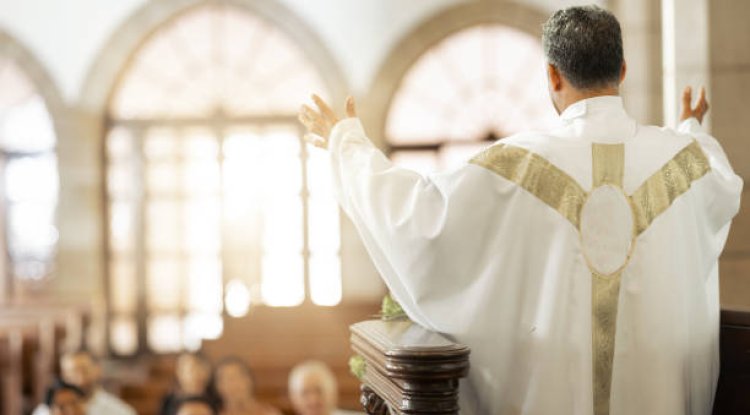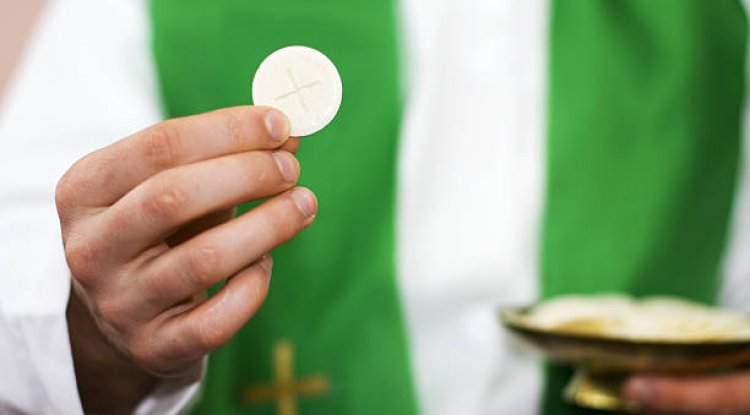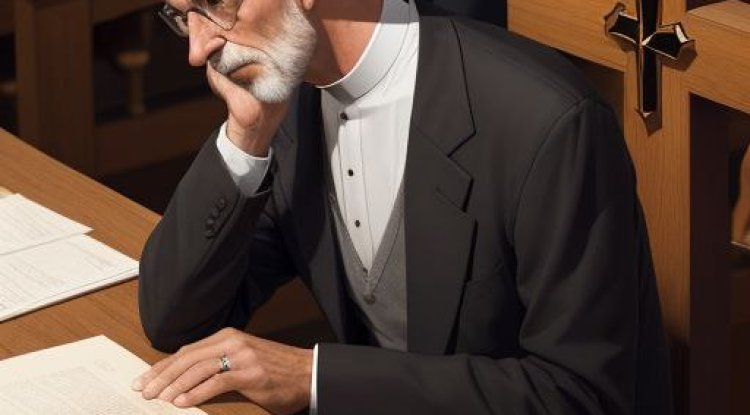WILL GOD REJECT YOU AS HIS PROPHET DUE TO YOUR LOVE OF MONEY?
HOMILY FOR FIFTEENTH SUNDAY IN ORDINARY TIME, YEAR B. Readings: Amos7:12-15; Ephesians 1:3-14 and Mark 6:7-13

While we recall the rejection and discomfort of the prophetic mission of last Sunday, today’s liturgy draws our attention to the call and mission of the prophet Amos and the Disciples of Christ. What is common in their vocation is that God calls the weak and makes them strong.
The first reading presents to us Amaziah the priest of Bethel and the prophet Amos as a poor farmer. Amos is known as the defender of the poor against the rich and so he always identifies with the poor and the marginalized in the society, the widows, orphans, refugees, foreigners, oppressed and all who cannot fight for themselves. On the contrary, Amaziah the priest of Bethel identified with the rich and he was a prophet that was chosen and paid by the king to be the chaplain of the temple. Invariably, the work of the prophet of the temple was more or less a profession not a vocation. Therefore, it was practically impossible for Amaziah to speak against the king on injustice and other social/economic challenges of the people of Israel.
Israel was divided into two Kingdoms: The Northern Kingdom called Israel with Samaria as its capital and the Southern Kingdom called Judah with Jerusalem as its capital. God knew there were prophets in Northern Israel but chose Amos from the South to prophesy to the Northern Kingdom of Israel because the prophets from the North took sides with the rich oppressors and could no longer stand for justice, they would rather work for their self-interest. They were corrupt and their mission as prophets had been compromised, and their quest for money made them irrelevant before God and so, they had no moral ground to speak on injustice.
Amaziah, seeing himself as the ‘landlord’ prophet said to Amos, “O seer, go, flee away to the land of Judah, and eat bread there, and prophesy there; but never again prophesy in Bethel…” (Am 7:12-13). In response, Amos said, “I am no prophet or prophet’s son; but I am a herdsman, and dresser of sycamore tree, and the Lord said to me, ‘Go, prophesy to my people Israel’” (vv. 14-15). Put differently, he is not a prophet by profession, like those of the temple but was called by God for a specific mission. God called and sent him on mission. The way God called and used Amos is similar to the way Christ called and used His disciples in the Gospel, they were common hardworking men used to do great things.
In the Gospel, Christ called the twelve and began to send them out two by two. Like Amos, they were ordinary or common people. Their mission was to announce the word that is not theirs, but of God. That is why they were given orientation or formation by their Master for this mission. This orientation is in concomitance with the mission of Amos. He charged them to take nothing for the journey except a staff. A staff gives an indication of a shepherd, one who looks after sheep just like Amos the herdsman. To take nothing with them indicates his interest for the poor as Amos identified with the poor who solely depend on Divine Providence. God knows better how to carter for the welfare of His servants. Better still, for His servants to have confidence in the hospitality of the people he/she is sent and to detach from materialism. Obviously, when we acquire or possess so many material things, it becomes difficult for us to detach or relocate. As priests and religious, when we are transferred to other communities, it becomes a burden for us to relocate with ease. Also, if we want to travel far, there is need for us to travel light. Travelling light requires dropping unnecessary baggage, which could be anger, hatred, unforgiveness or other forms of vices. These vices hinder our call to holiness.
St. Paul in the second reading tells us that the hallmark of our call/vocation is to be holy. He says, “…God chose us in Christ before the foundation of the world, that we should be holy and blameless before him” (Eph 1:4). In Christ, we are called to live in holiness and love. In Christ we become adopted sons and daughters of God.
Dear friends in Christ, by virtue of our baptism, we are all prophets and the liturgy of today says woe to any prophet who is carried away by fat envelops from parishioners with the intention that we keep silent in the midst of evil. It makes God reject us as His servants, which was the weakness of Amaziah the priest of the temple and should not be ours. We should stand for justice like prophet Amos and be disposed for the mission God is sending us. When we put our trust and confidence in God who has called and chosen us, then we can say like the psalmist, “Merciful love and faithfulness have met; justice and peace have embraced” (Ps. 85:10). May God help us to be true and faithful missionaries through Christ our Lord. Amen!
Happy Sunday!
Fr. Ken Dogbo, OSJ
What's Your Reaction?



















